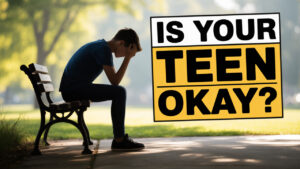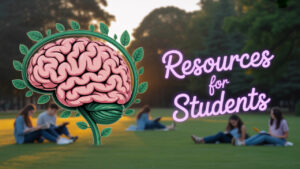Therapy activity for teenager is designed to improve their emotional and mental health. This article outlines different types of therapy activities, including creative art, music therapy, outdoor activities, and group games, all aimed at boosting emotional resilience, self-awareness, and communication skills.
Key Takeaways
Therapy activities are essential for teenagers’ emotional growth, resilience, and communication skills, providing a supportive environment for exploration and expression.
Engaging in creative art, music therapy, and outdoor activities helps teenagers articulate their emotions, manage stress, and develop coping strategies, contributing to overall mental health.
Group therapy games and family activities promote open dialogue and emotional understanding, fostering stronger connections and support networks for teenagers and their families.
The Importance of Therapy Activities for Teenagers
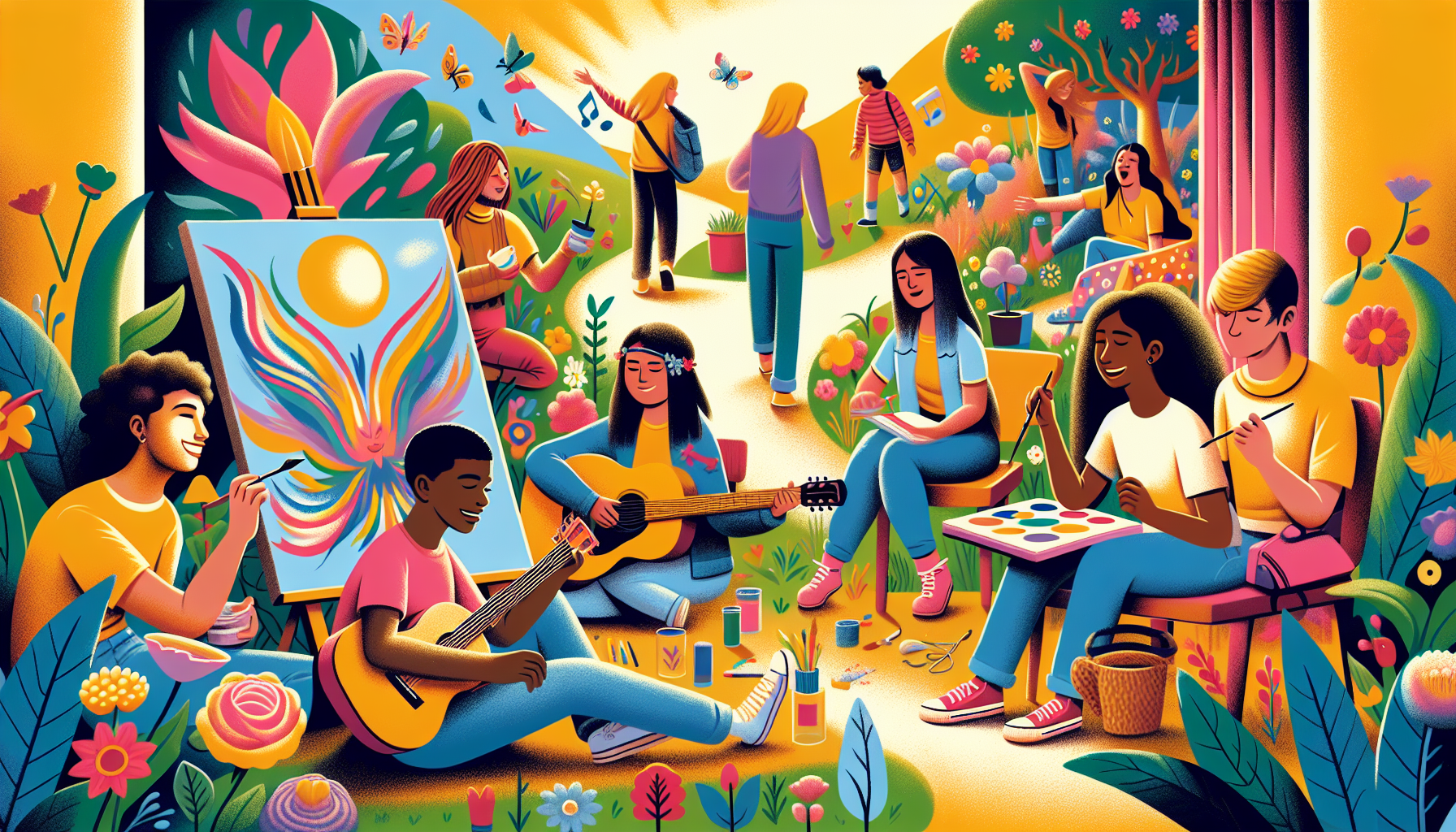
The teenage years are a critical period of emotional and psychological development. Engaging in therapy activities during this period can create a trusting and supportive environment essential for teenagers’ emotional growth. These activities offer a safe space for young people to explore their emotions, build resilience, and develop essential coping skills.
Therapy activities enhance self-awareness and promote emotional resilience among teenagers. Whether through creative art therapy, music therapy, or outdoor activities, these activities help teens navigate their feelings and face life’s challenges with confidence. The therapeutic process supports teenagers in expressing their thoughts and emotions confidently, ultimately improving their mental health treatment.
Moreover, therapy activities can significantly improve communication skills in adolescents. Therapy activities like group games and art projects foster better communication and understanding among peers. These activities uplift their mood and help mitigate stress, enhancing overall well-being.
Integrating therapy activities into teenagers’ lives supports them in managing emotional challenges, peer pressure, and academic stress. Promoting confidence, emotional regulation, and better communication skills, these activities are vital for the mental health and development of young adults.
Creative Art Therapy Activities
Creative art therapy activities effectively support teenagers’ mental health and emotional well-being. They allow teens to explore and express their emotions through painting, collage making, and sculpture creation. Art therapy offers a non-verbal means of communication, making it particularly beneficial for teens who may struggle with verbal expression.
Here are some specific art therapy activities that can significantly impact teenagers’ lives.
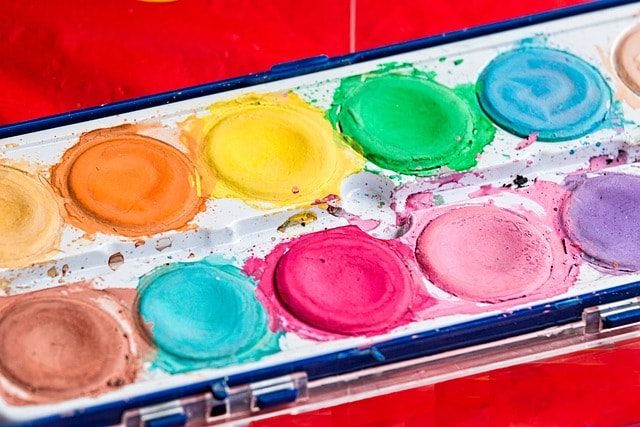
Painting Emotions
Painting helps teenagers articulate their emotions and achieve stress relief. Through colors and brushstrokes, teens can visually express complex emotions they might find difficult to verbalize. This form of self-expression can lead to greater self-awareness and emotional regulation.
Painting promotes self-expression, provides significant stress relief, and boosts self-esteem. Teens who engage in painting activities often experience a sense of accomplishment and pride in their creations, which can uplift their mood and enhance their overall well-being. Traditional painting or tactile experiences like finger painting encourage teens to explore their emotions safely and creatively.
Collage Making
Collage making encourages teens to express their thoughts and feelings visually. Through the process of selecting and arranging images, teens create a visual representation of their core beliefs and values. This activity improves focus and decision-making skills while allowing teens to explore their inner selves.
Understanding their core values through collage-making helps teens develop essential coping skills and strategies for their mental health. This activity not only fosters creativity but also provides a constructive outlet for managing academic stress and other pressures.
Sculpture Creation
Sculpture creation provides teenagers a hands-on approach to express their thoughts and emotions. Using materials like clay, wood, or metal, teens mold and shape their feelings into tangible forms. This process promotes self-expression and serves as a therapeutic outlet for managing stress and anxiety.
Engaging in sculpture-making helps teens cope with external pressures creatively and constructively. Sculpting allows them to focus their energy on creating something meaningful, benefiting their emotional and mental well-being.
Music Therapy for Emotional Expression
Music therapy offers a dynamic way for teenagers to express their emotions and improve their mental health. Activities like creating personal playlists, songwriting, and drumming circles help teens explore their feelings, reduce stress, and enhance their emotional well-being.
Here are some specific music therapy activities that can positively impact teenagers.
Personal Playlists
Creating personal playlists allows teens to express their feelings and thoughts through music. By selecting songs that resonate with their experiences, teens can create a ‘My Life’ playlist reflecting their emotional journey. This activity supports self-awareness and helps teens process their past and present emotions.
Activities like ‘My greatest hits’ or ‘listen to my future self’ encourage teens to focus on self-esteem and envision their future selves. Combining song selection with tasks like designing jewel boxes allows teens to vent their feelings through music and art, enhancing their therapeutic experience.
Songwriting
Songwriting provides teens a constructive outlet to express their emotions. Writing lyrics and composing music allows teens to articulate their feelings creatively and meaningfully. This activity supports emotional expression and enhances self-regulation and social interaction among peers.
Songwriting serves as a vital tool for verbal expression, helping teenagers process their emotions and improve their mental well-being. Encouraging creativity and personal growth, it is a valuable addition to any therapy session.
Drumming Circles
Drumming circles provide a fun and engaging way for teens to express their emotions and reduce stress. Performed individually or in groups, drumming fosters emotional release and positive relationships. Group drumming sessions provide a sense of community and shared experience, beneficial for teenagers’ mental health.
Drumming circles allow teens to release pent-up emotions and express themselves constructively. The rhythmic nature of drumming, combined with the social aspect of group sessions, enhances emotional well-being and mental clarity.
Outdoor Therapy Activities

Outdoor activities offer essential physical and mental health benefits for teenagers. Activities like nature walks and yoga sessions can significantly lower stress levels, improve mood, and enhance overall well-being.
Here are some specific outdoor fun therapy activities that can help teenagers thrive.
Nature Walks
Nature walks offer teenagers a chance to connect with the natural world, providing profound mental health benefits. Walking in nature boosts mood, alleviates anxiety and depression, and improve mental health overall well-being. The calming effect of nature, combined with moderate physical exercise, reduces mental fatigue and enhances mental clarity.
Nature walks in therapy sessions offer a therapeutic outlet to manage stress and improve cardiovascular health. This activity encourages mindfulness and presence, helping teens escape daily pressures and recharge mentally and physically.
Yoga Sessions
Yoga sessions provide a holistic approach to improving teenagers’ mental and physical health. Combining deep breathing exercises and physical postures, yoga lowers stress hormones and supports emotional balance in adolescents. This practice promotes relaxation, mindfulness, and self-awareness, making it effective for stress relief.
Practicing yoga significantly enhances mental clarity and emotional regulation for teenagers. The deep breathing techniques and mindful movements in yoga contribute to overall mental well-being and stability, making it valuable for any therapeutic process.
Group Therapy Games
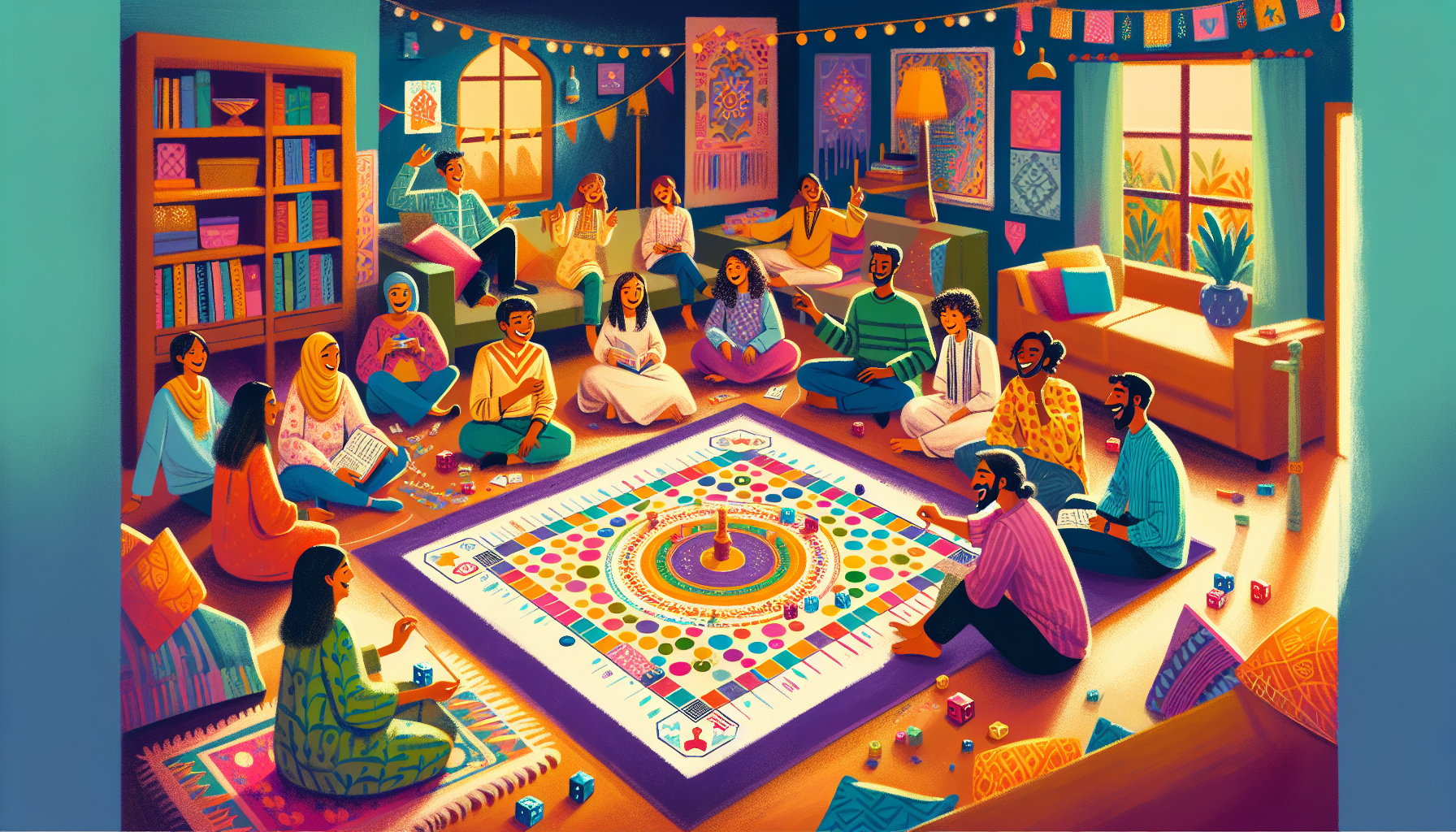
Group therapy games provide a fun and interactive way to engage teenagers in therapeutic activities and group therapy activities. They promote a sense of community, enhance emotional awareness, and improve social skills.
Here are some specific group therapy games that can benefit teenagers.
Problem-Solving Scenarios
Problem-solving scenarios enhance decision-making and coping skills among teenagers. Presenting teens with various scenarios encourages critical thinking and collaboration to find solutions. This exercise improves problem-solving skills and fosters teamwork and valuable insights into handling emotional challenges.
Problem-solving scenarios help teens develop resilience and confidence in navigating complex situations. This activity offers a safe space for teens to practice decision-making and coping strategies, essential for personal growth and emotional well-being.
Feelings Wheel
The Feelings Wheel game helps teenagers identify and articulate their emotions. Using a visual representation of emotions, this activity promotes open dialogue and enhances empathy among participants. Teens can explore complex emotions and learn to express their feelings constructively, crucial for emotional regulation and self-awareness.
The Feelings Wheel game helps teenagers develop a better understanding of their emotional landscape. It fosters a supportive environment where teens can share their feelings and build stronger connections with their peers. Promoting empathy and emotional articulation, the Feelings Wheel game contributes to teenagers’ overall mental well-being.
Mindfulness Exercises
Mindfulness exercises promote mental well-being and reduce stress among teenagers. They cultivate a sense of presence and increased self awareness, helping teens manage anxiety and emotional challenges.
Here are two specific mindfulness exercises that can enhance mental clarity and emotional balance.
Guided Meditation
Guided meditation enhances focus, reduces anxiety, and promotes relaxation among teenagers. Guiding teens through relaxation techniques and deep breathing exercises, meditation sessions significantly improve overall well-being and mental clarity. It helps teens uncover subconscious thoughts and emotions, leading to greater self-awareness and emotional balance.
Guided meditation in therapy sessions offers teenagers a valuable tool for managing stress and enhancing mental health. Drawing and guided imagery help teens express their feelings and achieve relaxation, making it a versatile and effective therapeutic activity.
5-4-3-2-1 Grounding Exercise
The 5-4-3-2-1 grounding exercise helps teenagers focus on the present moment and reduce stress or anxiety. Engaging their senses, teens become more mindful of their immediate surroundings and current feelings. It encourages mindfulness and awareness, helping teens manage their emotions more effectively.
Engaging in the 5-4-3-2-1 grounding exercise provides teenagers with a powerful tool for reducing anxiety and enhancing their overall mental well-being. This activity promotes greater self-awareness and emotional regulation, making it an essential practice for managing stress and achieving mental clarity.
Family Therapy Activities
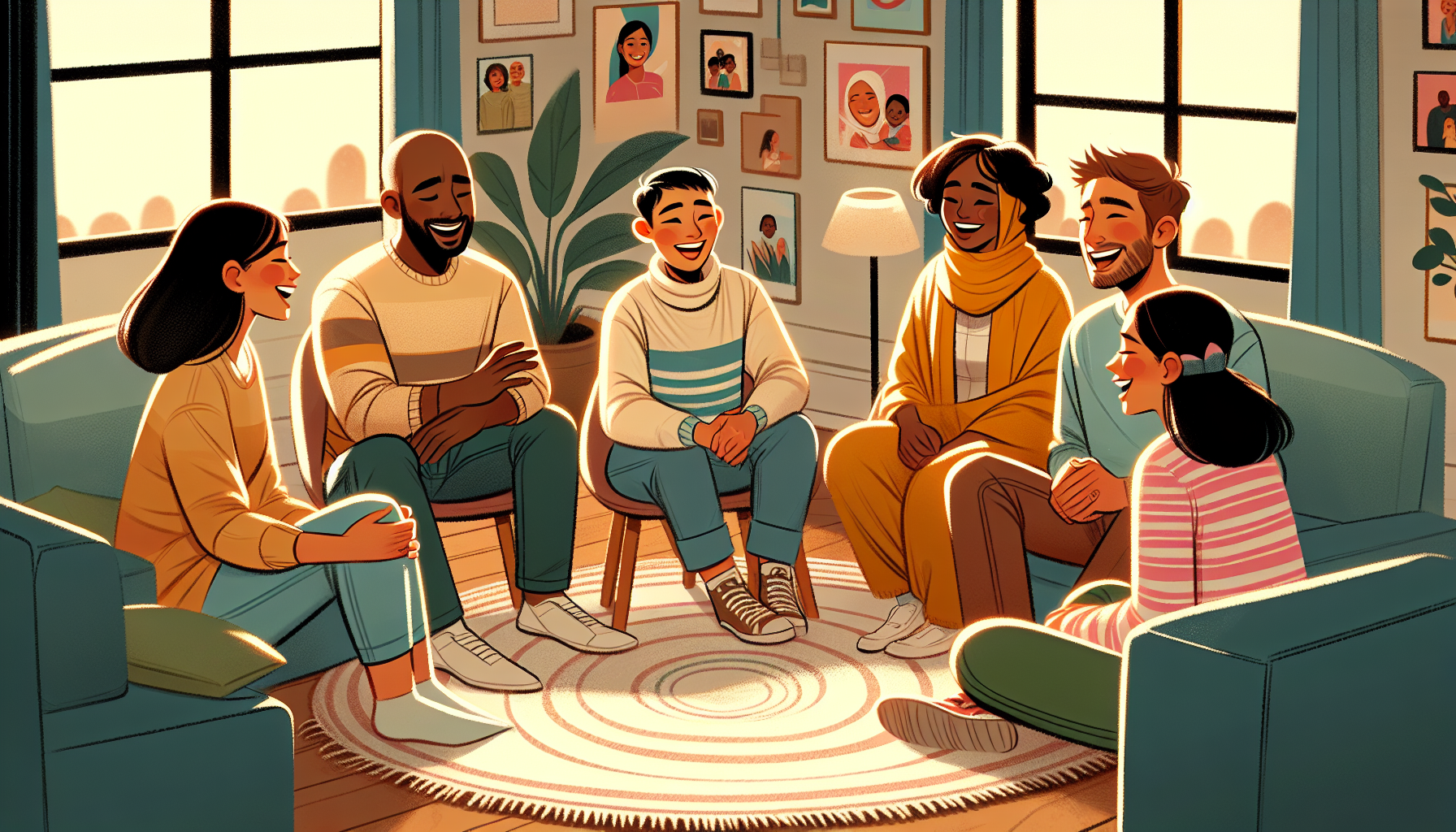
Family therapy activities are designed to address specific issues affecting the health and functioning of the family unit. These activities can help improve communication, foster understanding, and enhance emotional connections among family members.
Let’s explore some specific family therapy activities that can benefit teenagers and their families.
Happiest Memory Sharing
The ‘My Happiest Memory’ activity encourages family members to focus on positive memories and open up communication within the family. By sharing their happiest memories, family members can foster a supportive environment and strengthen their bonds. This activity helps deepen connections and enhance emotional understanding among family members, contributing to overall mental well-being for teenagers.
Creating a nurturing atmosphere where positive experiences are shared allows teens to feel more connected and supported by their family. This activity not only promotes emotional well-being but also helps build a foundation of trust and openness within the family unit.
Emotions Ball
The Emotions Ball activity is an excellent way for families to enhance their understanding and communication of emotions. By identifying and discussing different emotions, family members can empathize with each other and improve their overall communication. This activity encourages emotional discussions, fostering a supportive environment where teens feel comfortable expressing their feelings.
Engaging in the Emotions Ball activity helps teenagers articulate their complex emotions, which is crucial for their emotional regulation and mental well-being. By promoting open dialogue and emotional understanding, this activity strengthens family dynamics and supports the emotional growth of teenagers.
Summary
In summary, the therapy activities discussed in this blog post offer valuable tools for promoting the well-being and growth of teenagers. From creative art therapy to mindfulness exercises, these activities provide teenagers with effective ways to express their emotions, reduce stress, and enhance their overall mental health. By incorporating these engaging and therapeutic activities into their lives, teenagers can develop essential coping skills, improve communication, and build emotional resilience.
These therapy activities not only support individual growth but also foster a sense of community and connection among peers and family members. Encouraging teenagers to participate in these activities can lead to a more positive and supportive environment, ultimately contributing to their mental and emotional well-being. Let’s continue to explore and implement these therapeutic strategies to help teenagers thrive and grow.
Frequently Asked Questions
What are the benefits of art therapy for teenagers?
Art therapy significantly enhances teenagers’ self-awareness, emotional expression, self-confidence, and communication skills, fostering their overall development and well-being.
How can music therapy support emotional expression in teenagers?
Music therapy effectively supports emotional expression in teenagers by providing them opportunities to create personal playlists, engage in songwriting, and participate in drumming circles, fostering stress reduction and emotional well-being.
What are some effective mindfulness exercises for teenagers?
Effective mindfulness exercises for teenagers include guided meditation for relaxation and the 5-4-3-2-1 grounding exercise to reduce anxiety. These practices can significantly enhance mental clarity and overall well-being.
How do family therapy activities improve communication within the family?
Family therapy activities enhance communication by promoting open dialogue and emotional understanding, which fosters empathy among family members. This strengthens family bonds and encourages healthier interactions.
Why are group therapy games beneficial for teenagers?
Group therapy games are beneficial for teenagers as they foster a sense of community, enhance emotional awareness, and improve social skills, ultimately making therapy more engaging and effective.
FAQ's For Is Prozac Addictive?
No, Prozac is not classified as an addictive substance. It is not a controlled substance like opioids or benzodiazepines, which are known to cause physical addiction. However, individuals can develop a psychological dependence on Prozac, particularly if they have been using it long-term. Abruptly stopping the medication can result in withdrawal symptoms, but this is not the same as traditional addiction.
If Prozac is stopped suddenly, you may experience withdrawal symptoms, sometimes referred to as SSRI discontinuation syndrome. Common symptoms include flu-like symptoms, mood swings, trouble sleeping, anxiety, and sexual dysfunction. These symptoms can last for a few weeks but can often be minimized by tapering off the medication slowly under a doctor’s supervision.
The duration of Prozac treatment varies based on individual needs and the mental health condition being treated. For conditions like major depressive disorder or obsessive-compulsive disorder, Prozac is often prescribed for several months to years. Always consult with your doctor before stopping Prozac to avoid withdrawal symptoms or a return of your original condition.



